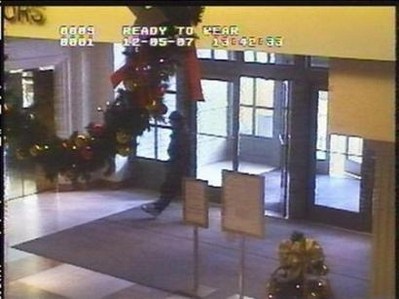US Senate passes gun bill in response to rampage
Updated: 2007-12-20 09:32
WASHINGTON -- Congress, prodded by the deadliest shooting rampage in modern American history, passed legislation on Wednesday designed to keep guns out of the hands of the mentally ill.
|
|
Without objection, the Senate and House of Representatives approved the measure, which would bolster background checks for gun buyers, and sent it to President George W. Bush to sign.
The measure would be the first major new gun-control law in more than a decade. It was drafted after a deranged gunman killed himself and 32 others in April at Virginia Tech university.
The product of months of talks, the bill was finally agreed to as lawmakers prepared to wrap up their work for the year and head home for the holidays.
"Together, we have crafted a bill that will prevent gun violence, but maintain the Second Amendment rights of law-abiding citizens" to bear arms, said Democratic Rep. Carolyn McCarthy of New York, a chief sponsor of the bill. Her husband was killed and son injured in 1993 when a gunman opened fire on a train.
The 4 million-member National Rifle Association, which has helped stop numerous gun-control bills as one of the nation's most powerful pro-gun lobbying groups, backed this one.
"This is good public policy," said NRA spokesman Andrew Arulanandam.
Americans are among the world's most heavily armed people, and the country has one of the world's highest murder rates.
|
|||
Congress has long been reluctant to tackle the politically explosive issue of gun control. But it did so after it was disclosed that the Virginia Tech gunman had once been deemed by a judge to be dangerous and the information never reached a background check system for gun buyers.
The legislation would provide financial incentives for states to provide mental health and criminal records to a database used for federal background checks on gun buyers.
UPDATING DATABASE
The 1968 Gun Control Act prohibits anyone found by a court to be "a mental defective" from possessing a gun. It also bars felons, fugitives, drug addicts and wife beaters.
But because of state privacy laws and fiscal restraints, most states have failed to fully report such records to the National Instant Criminal Background Check System.
McCarthy said: "Today, we are one step closer to making sure the National Instant Background Check System does what it was it was designed to do -- keep guns out of the hands of convicted felons, individuals subjected to restraining orders, those charged with domestic violence and individuals deemed mentally ill by a court of law."
The House initially passed such a bill in June. But the Senate refused to go along with it until a few changes were made. One would require the government to pay legal fees if a person who claims to have been wrongly listed in the background system wins an appeal.
Senate Judiciary Committee Chairman Patrick Leahy, a Vermont Democrat and a sponsor of the bill, said: "Nothing can bring back the lives tragically lost at Virginia Tech, and no legislation can be a panacea, but the bill we pass today will begin to repair and restore our faith in the NICS system and may help prevent similar tragedies in the future."
|
|
|
||
|
||
|
|
|
|





